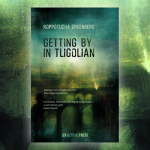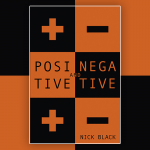So you want to write a piece of flash fiction. But how do you start? Where do story ideas even come from? And how do you develop them once you’ve found ‘em?
One of the great things about flash fiction is that you only really need a spark of an idea to get going. There’s no need (or time) for lengthy backstory, exposition, character development or extensive description. That’s not to say your story won’t briefly delve into all these aspects, but flash fiction is all about getting in and out as quickly and efficiently as possible, letting the reader fill in the gaps and imbuing as much meaning as possible to that glittering little spark.
But first, we have to begin with that initial intriguing snippet of inspiration. Luckily, another great thing about flash fiction is that those sparky ideas can come from absolutely anywhere. An overheard conversation on the bus. A photo from a newspaper article. A line of a song. A random insomniac thought at 3AM… (What if the whole world just stopped sleeping?!)
Here are a few exercises to get you started:
Pitting two concepts against one another is an excellent way to create instant conflict in a story. Writers’ HQ’s free weekly Flash Face Off challenge does just that, using two opposing ideas. For example: shiny vs dull, past vs future, acceptance vs rejection. Have a look at this week’s FFO prompts to see if something catches your eye.
Or how about an ekphrastic flash? (That’s just a fancy word for using a piece of art or an artefact as a starting point for your story.) Perhaps there’s a specific painting that evokes a forgotten memory, or a sculpture at the centre of a scenario, or an ancient object that contains centuries of stories… Use this writing exercise to explore a variety of different museum artefacts and see where they take you.
Or pose a question and see how many different ways you can answer it. Why is the sky blue? Why do I have to say sorry when it wasn’t my fault? Why can’t I find my glasses?! This writing exercise will get you asking why over and over again like a toddler. And the more bizarre and disconnected your answers get, the more intriguing the story becomes.
Or create a story disguised as a set of instructions. A recipe for poison. A manual for landing a spaceship. A note for the babysitter on how to get your kid to brush their teeth. Try starting with a ‘how to’ statement and see if you can interweave a hidden meaning into your instructions. This handy writing exercise explains how it’s done.
Or look at these three great examples by Writers’ HQ authors published right here in Ellipsis. What was the ‘spark’ that led to the story? (Fun fact: some of them actually began life in our Flash Face Off challenge!) How have they structured their story around that spark? And what deeper truth is lurking inside?
The Girl Who Screamed in the Night by Alyssa Bushell — we’ve all had that moment of uncertainty and anxiety, hearing an anonymous cry in the night, but this story sums up that feeling so well, along with all the ‘what ifs’ that come with it.
Dead Letters by Carolina Gonda — a beautiful two-threaded story about a researcher and the discovery of secret love letters. So much is left unsaid here, but the connection between the two characters is tangible.
Six Ways to Start Something and Five to End It by Rachel O’Cleary — such a cleverly-crafted piece, detailing the stages of a relationship using subheadings that read like a meta description of story structure itself.
Just look at how different (but how effective) each one of these is—proving yet another great thing about flash: how endlessly adaptable it is. So have fun with your spark. Experiment. Get weird with it. Break out of your comfort zone. Try something new. And discover the truth inside that tiny little story.
…
Writers’ HQ runs a free flash fiction challenge, Flash Face Off, where you can hone your flashy skills with weekly prompts, a private writing forum for peer feedback and workshopping, and a live open mic event every Friday where a handful of flashes are chosen to be read aloud by their authors. Find out more here and join in!
Writers’ HQ also has a huge catalogue of online writing courses, webinars, workshops and resources, and the very best writing community in town to help you find your literary home and develop your writing with a team of friendly cheerleaders.





